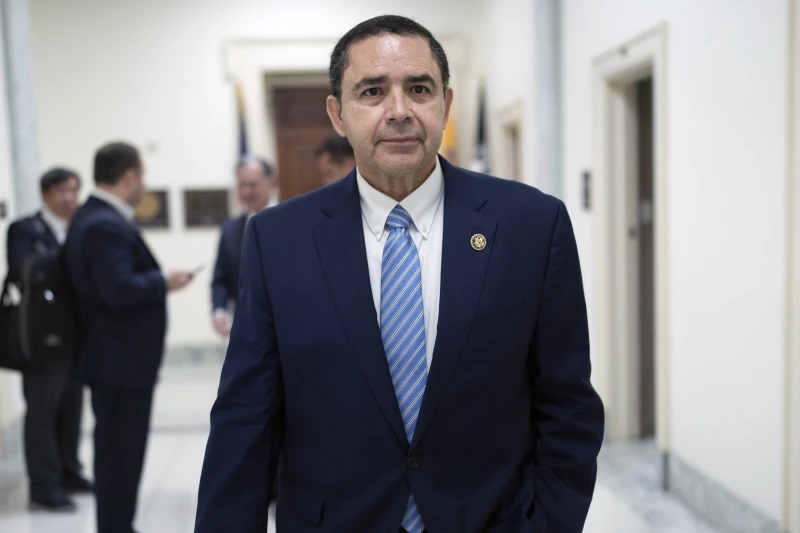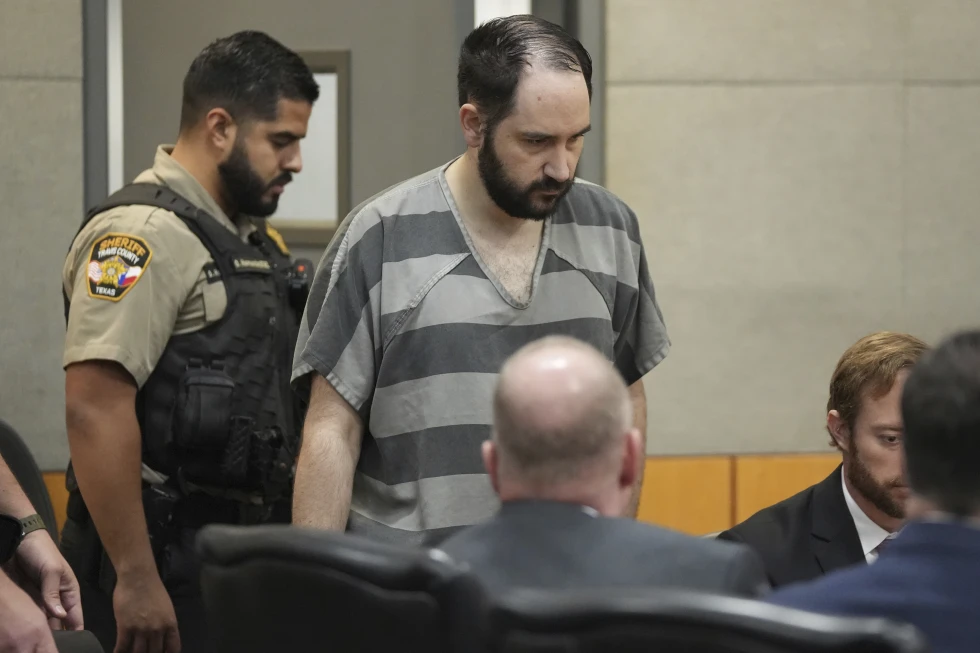The recent decision by Texas Governor Greg Abbott to issue a full pardon to former U.S. Army sergeant Daniel Perry has sparked intense debate and raised important questions about the intersection of justice, politics, and self-defense in the United States.
The case, which revolves around Perry’s fatal shooting of an armed demonstrator during nationwide protests against police violence and racial injustice in 2020, has divided opinions and highlighted the complexities of applying laws related to self-defense in volatile situations.
Governor Abbott’s announcement of the pardon came shortly after the Texas Board of Pardons and Paroles unanimously recommended that Daniel Perry be pardoned and have his firearms rights restored.
This decision effectively overturned Perry’s 2023 conviction for the murder of Garrett Foster, a white Air Force veteran, during a confrontation at a demonstration in Austin. Perry, who is also white, was working as a ride-share driver at the time of the incident.
The circumstances surrounding the shooting of Garrett Foster have been a subject of intense scrutiny and debate. Witnesses claimed that Foster never raised his gun and that Perry could have driven away from the confrontation.
However, a jury convicted Perry of murder, leading to his imprisonment on a 25-year sentence. Governor Abbott, in justifying the pardon, argued that the case was a clear instance of self-defense and cited Texas’ robust ‘Stand Your Ground’ laws that prioritize self-defense rights.
The decision to pardon Daniel Perry has not been without controversy. Critics, including Travis County District Attorney Jose Garza, have condemned the pardon as a “mockery of our legal system” and accused the board and the governor of prioritizing politics over justice.
Garza’s remarks underscore the deep divisions and conflicting interpretations of the events that unfolded on that fateful day in Austin.
Governor Abbott’s handling of the Perry case has also drawn attention to his broader approach to issuing pardons. Known for pardoning individuals convicted of minor offenses, Abbott’s decision to pardon Perry stands out as a departure from his usual pattern.
The governor’s refusal to consider a posthumous pardon for George Floyd, whose killing by a police officer in Minneapolis ignited nationwide protests, further complicates the narrative surrounding his stance on justice and pardons.
The case of Daniel Perry and the ensuing pardon by Governor Abbott serve as a poignant reminder of the complexities inherent in navigating issues of justice, race, self-defense, and political considerations.
As the debate continues to unfold, it is crucial to engage in thoughtful dialogue and reflection on how best to uphold principles of fairness, equity, and accountability within the legal system.
In conclusion, the pardon of Daniel Perry by Governor Greg Abbott represents a significant moment in the ongoing discourse surrounding justice and self-defense in the United States.
The case raises important questions about the application of laws, the role of politics in decision-making, and the need for a nuanced understanding of complex legal issues.
As we grapple with the implications of this decision, it is imperative to strive towards a more just and equitable society where the rights and dignity of all individuals are upheld and protected.
In the realm where justice and politics intersect, the case of Sergeant Perry stands as a poignant example of the intricate web woven by legal proceedings, public opinion, and executive intervention.
The demand for a review of Perry’s case, instigated by former Fox News luminary Tucker Carlson and subsequently supported by Governor Abbott, has reignited debates surrounding self-defense, racial bias, and the limits of executive clemency.
This essay aims to dissect the multifaceted layers of Perry’s pardon, examining the legal, ethical, and societal implications that reverberate through this controversial decision.
At the heart of the matter lies the tragic event that unfolded in April 2023, culminating in the death of Garrett Foster at the hands of Sergeant Perry.
The prosecution’s narrative, built upon Perry’s social media history and text messages, painted a picture of a man tainted by racial animosity and predisposed to violence.
Conversely, Perry’s defense team argued that he acted in self-defense when faced with an armed individual amidst a volatile crowd.
The subsequent guilty verdict and sentencing underscored the gravity of the situation, leading to a polarized public discourse and a wave of conservative backlash.
The dynamics of the case were further complicated by Perry’s military background and his alleged struggles with post-traumatic stress disorder (PTSD), adding a layer of psychological complexity to the narrative.
The revelation of Perry’s contentious social media posts, coupled with his combat experiences and personal history, created a nuanced backdrop against which the events unfolded.
The intersection of Perry’s military service, mental health challenges, and alleged racial biases added layers of complexity to an already contentious legal battle.
The role of Governor Abbott in pardoning Perry cannot be understated, as it signifies a convergence of legal authority and political influence.
The governor’s decision to intervene in the judicial process, prompted by external pressures and public outcry, raises questions about the boundaries of executive power and the impartiality of the justice system.

The pardon, hailed by Perry’s supporters as a triumph of self-defense rights and criticized by his detractors as an affront to justice, encapsulates the divisive nature of the case and its broader implications for societal values and legal norms.
Whitney Mitchell’s impassioned response to the pardon encapsulates the deep-seated emotions and ideological divides that permeate this case.
Her characterization of the governor’s action as “lawlessness” underscores the profound sense of injustice felt by Foster’s loved ones and supporters, who view the pardon as a betrayal of the judicial process and a validation of discriminatory attitudes.
The clash between Mitchell’s perspective and Perry’s defense team’s narrative highlights the stark contrast in how the events are interpreted and the divergent paths to justice that they represent.
In conclusion, Perry’s pardon serves as a microcosm of the intricate interplay between law, politics, and morality in contemporary society.
The case raises fundamental questions about the nature of justice, the limits of self-defense, and the role of executive authority in legal proceedings.
As the echoes of this contentious decision reverberate through public discourse and legal circles, it behooves us to reflect on the complexities of justice and the enduring quest for truth and fairness in a world fraught with ambiguity and discord.
